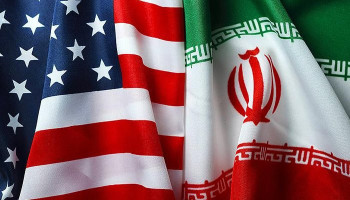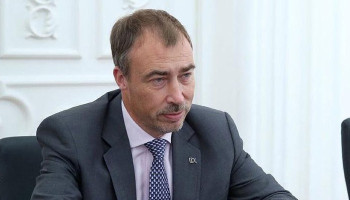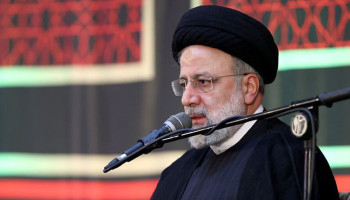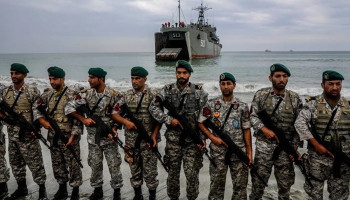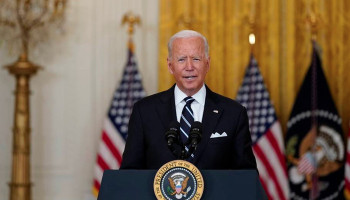Pentagon nominee differs with Trump, says Putin trying to ‘break’ NATO, sees China, Iran also as threats
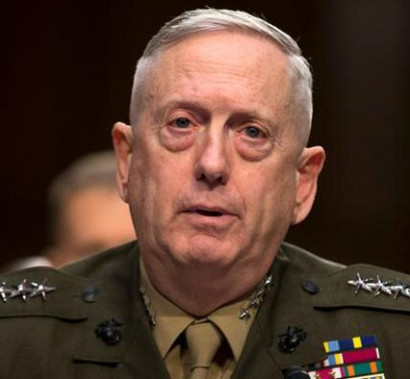 Retired Gen. James Mattis, poised to become the first career military officer to lead the Pentagon since the 1950s, said Thursday he believes Russian President Vladimir Putin is trying to “break” the NATO alliance that has anchored American and European security for more than half a century. At his Senate confirmation hearing, Mattis portrayed Russia as a strategic adversary and placed it at No. 1 on his list of security threats. He said the history of U.S.-Russian relations is short on successful efforts at lasting cooperation, something President-elect Donald Trump has pledged to pursue. Mattis said he agrees with the thrust of Trump’s plan to increase the size of the U.S. military, but their views on Russia appeared at odds. Trump has repeatedly emphasized his hope for good relations with Putin, even as U.S. intelligence agencies have accused the Russian leader of orchestrating a campaign of interference in the 2016 U.S. election. Of Putin, said Mattis, a former NATO military leader: “He is trying to break the North Atlantic alliance.” He said he has explained to Trump his views on Russia, which include a deep worry that Moscow is determined to create a sphere of unstable states on its periphery through intimidation. Mattis said he supports the Obama administration’s moves to reassure European allies after Moscow’s annexation of Ukraine’s Crimea region and military activity in eastern Ukraine. While the U.S. should remain open to working with Russia, Mattis said, the prospects for cooperation are narrowing. The context was clear. As Mattis spoke, Trump’s choice to run the CIA, Rep. Mike Pompeo of Kansas, sided with intelligence officials who claim the Kremlin was behind the election cyberattacks, adopting a similarly tough stand against Russia. Ties between the former Cold War foes also have been strained by Syria’s civil war. Mattis appeared to be cruising toward confirmation. He faced no hostile questions from Republicans or Democrats, receiving bipartisan praise for his reputation as a straight-talking, well-read man of integrity and intelligence. “How about Mr. Secretary?” Rep. Lindsey Graham, R-S.C., asked him half-jokingly. William Cohen, a defense secretary for Democratic President Bill Clinton, introduced Mattis as a “humble man with very little to be humble about.” “He’s a man of thought as well as action,” Cohen said. Mattis said the world order was under “the biggest attack since World War II,” blaming Russia, China and international terrorist organizations for its destabilization. Asked by Sen. John McCain, the Armed Services Committee’s Republican chairman, if the U.S. military was ready to confront these challenges, Mattis replied: “No, sir.” On cyberattacks, Mattis noted that wars often are started by miscalculation. He said the U.S. needs to set clear boundaries so that adversaries know what the U.S. will not tolerate. A former top commander of U.S. forces in the Middle East, Mattis said he believes Washington must “restore a better relationship” with Israel and Arab partners. Still, he declined to embrace the common Republican assertion that President Barack Obama allowed Israel’s military edge over its regional foes to erode. In prepared testimony, Mattis said he understands his role as the Defense Department’s civilian leader would be different “in essence and in substance” from his four decades in uniform. “The esprit de corps of our military, its can-do spirit and its obedience to civilian leadership reduces the inclination and power of the military to criticize or oppose the policy it is ultimately ordered to implement,” Mattis said. He called civilian control “a fundamental tenet of the American military tradition.” Mattis, 66, retired in 2013 after serving as commander of U.S. Central Command in charge of all U.S. forces in the Middle East. He is known for having strong views on Iran. Mattis sees Tehran as a menace in the Middle East, and would work for a president who has pledged to toughen U.S. policy toward Iran. That could have broad implications as the incoming administration weighs modifying the 2015 Iran nuclear deal and reconfiguring American posture in the Middle East after complaints from U.S. allies that Obama yielded too much ground to Tehran. The last career military officer to serve as defense secretary was George Marshall in 1950-51. Before Mattis can join the Cabinet, Congress must approve a one-time exception to a law requiring a military officer to be out of uniform for at least seven years before leading the Pentagon. Even some of Trump’s strongest critics say Mattis merits the exception. Mattis put Russia at the top of a list of threats to U.S. interests and told Congress on Thursday that America must be ready to confront it where necessary, even as he backed Trump’s bid to engage with Moscow. He added that Russia, China and Islamist militants were presenting the biggest challenge to the U.S.-led world order since World War II, and called for Congress to lift spending caps undermining military readiness. His remarks to the Senate Armed Services Committee appeared set to clinch the panel’s backing for his nomination, as Russia-wary lawmakers hope he might temper Trump’s stated desire to partner with Moscow. “I’m all for engagement but we also have to recognize reality in what Russia is up to,” Mattis said, adding there were a “decreasing number of areas” where the United States might cooperate with Moscow. Asked about the main threats to U.S. interests, Mattis said: “I would consider the principle threats to start with Russia.” Due to enter the White House in eight days, Trump on Wednesday acknowledged that Russia likely hacked the Democratic National Committee and emails of top Democrats during the 2016 presidential election campaign, a conclusion reached by U.S. spy agencies. Mattis cited Russian involvement in hacking and information warfare among the challenges posed by Moscow. Others include treaty violations, using tactics short of open war to destabilize other countries and “alarming messages from Moscow regarding the use of nuclear weapons.” Mattis said Russian President Vladimir Putin was trying to undermine NATO. Mattis had talked about the importance of the Western military alliance with Trump, who was open to the discussion, the retired general said. Senator McCain said he “could not be happier” about Mattis’ nomination. He warned sternly against optimism about engaging with Putin. “Putin wants to be our enemy. He needs us as his enemy. He will never be our partner,” McCain exclaimed. Mattis also singled out China for its activities in the South China Sea, where it has been building man-made islands with anti-aircraft and anti-missile batteries. Together with Russian activities and the threats of Islamist extremists, Mattis said China was part of mounting assault on global stability, and the relationship with Beijing needed to be carefully managed. “I think it (the world order) is under the biggest attack since World War II, sir, and that is from Russia, from terrorist groups, and with what China is doing in the South China Sea,” he said, as he railed against defense spending caps imposed by Congress. Mattis, who retired from the military in 2013, is technically ineligible for the job since he has not been a civilian for at least seven years. That means Congress would need to grant him a waiver, something it has not done since 1950, but appears inclined to do now. In his opening statement, Mattis said he can lead the military as a civilian, even after a 44-year military career. Mark Cancian, a senior adviser at the Center for Strategic and International Studies, said he expected bipartisan support for Mattis would help him overcome that hurdle. “The other thing he has going for him is that he may be a restraint on some of Trump’s more extreme impulses,” Cancian said. “The concern that people would have is OK, you vote down Mattis, who do you get?” Mattis said the U.S. strategy to retake the Islamic State militant group’s de facto capital in the Syrian city of Raqqa would to be reviewed and potentially re-energized. Mattis was also critical of Iran’s influence in Iraq, Syria and Yemen. “Iranian malign influence in the region is growing. Iran is the biggest destabilizing force in the Middle East and its policies are contrary to our interests,” Mattis said in his written responses. Officials who knew him before he retired in 2013 said Mattis clashed with top Obama administration officials when he headed the military’s Central Command over his desire to better prepare for potential threats from Tehran. On Iraq, where a U.S.-led coalition is backing Iraqi troops battling Islamic State, Mattis said the main goal should be to ensure “that it does not become a rump state of the regime in Tehran.” Mattis, 66, has tried to persuade Trump privately against the use of waterboarding, which simulates drowning, as an interrogation tactic. Top U.S. officials, many lawmakers and human rights groups have denounced waterboarding as torture. |












